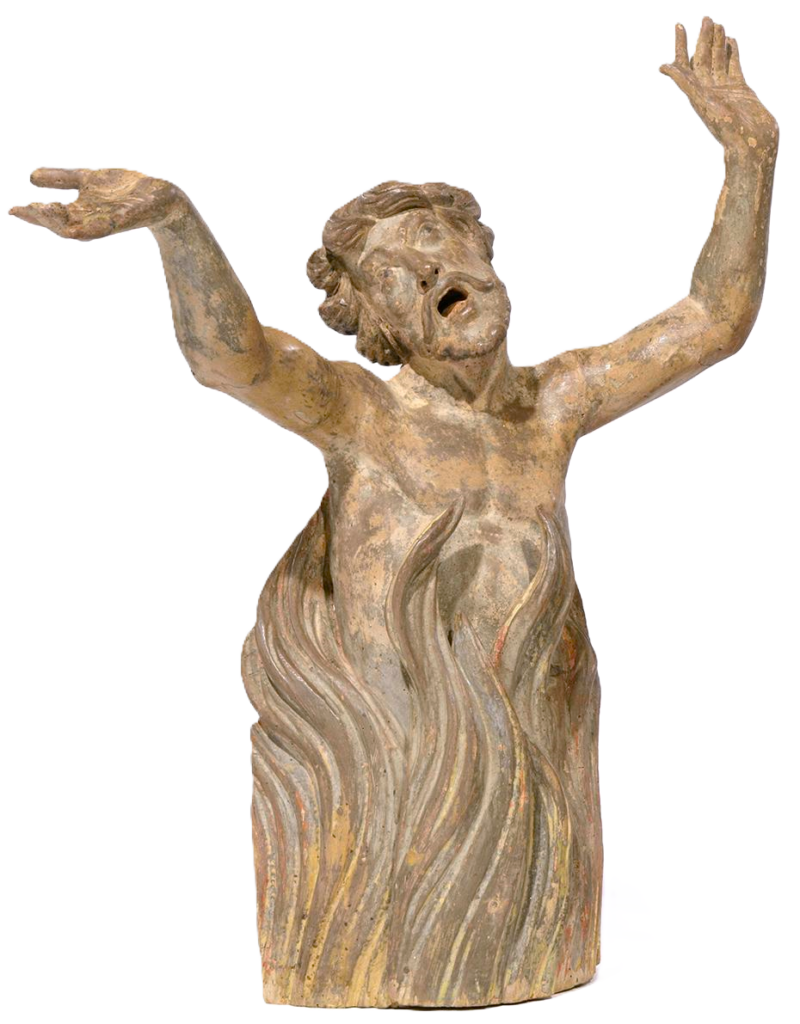TREATISE ON PURGATORY by St. Catherine of Genoa
CHAPTER VII
THE WONDERFUL WISDOM OF GOD IN THE INVENTION OF PURGATORY AND HELL

As the soul cleansed and purified finds no place wherein to rest but God, this being its end by creation, so the soul in a state of sin finds no place for it but hell, this being its end by the appointment of God. No sooner, then, does the soul leave the body in mortal sin than it goes straight to hell as to its allotted place, with no other guide than the nature of sin; and should a soul not find itself thus prevented by the justice of God, but excluded altogether from His appointment, it would endure a still greater hell for God’s appointment partakes of His mercy, and is less severe than the sin deserves ; as it is the soul, finding no place suited to it, nor any lesser pain provided for it by God, casts itself into hell as into its proper place. Thus, with regard to purgatory, when the soul leaves the body, and finds itself out of that state of purity in which it was created, seeing the hindrance, and that it can only be removed by purgatory, without a moment’s hesitation it plunges therein: and were there no such means provided to remove the impediment, it would forthwith beget within itself a hell worse than purgatory, because by reason of this impediment it would see itself unable to reach God, its last end: and this hindrance would be so full of pain, that, in comparison with it, purgatory, though, as I have said, it be like hell, would not be worth a thought, but be even as nothing.
Reflection
The judgement and consignment to Hell is a pronouncement of God as the Just Judge of all creation. It is not a passive ratification of the choice of the soul in question; it stems not from God’s permissive will but rather is of His active will. To consider otherwise sets up an untenable position where the damned soul has some leverage or power over God – that the damned soul receives what it wants rather than what God wills, either in the sense of His will that souls were created to glorify God, or in the sense that God wills the eternal beatitude of the soul.
Whither shall I go from thy spirit? or whither shall I flee from thy face? If I descend into hell, thou art present (Psa 138:7-8). Surely, the damned soul does not will to be with God, and seeks right away to flee from His Face, yet the damned cannot flee far enough – they do not get what they want in their damnation. The damned rather get what God wills, for even in His justice there is mercy, and even in justice does every damned soul glorify God (albeit against her will) (cf. Phil 2:10).
The will of the damned soul seeks to flee from God because she embraces her imperfections; her wounds, her disorders, her vices, are her identity, and she finds them, in their filth, to be superior to what God desires to give her. The will of the imperfect soul seeks to flee from God because she sees her imperfections as hindrances to union with God. She hates them with perfect hatred and desires to be rid of them so that she might be with her Beloved (cf. Psa 138:21-24). God’s will to bring this soul to her perfect end, and in His mercy provides a place where her varied hindrances might be removed from her by the fires of His love.
Contemplation
Question: Man is tempted to think the wrong way about that God is “unfair” for damning a soul. He is “unfair” in that He doesn’t sentence a damned soul to what it deserves but rather, in mercy, brings about soul’s (unwilling) glorification of Himself in justice. How might God’s “unfairness” reorientate our sense of justice that we want to meet out to those who wrong us?
Question: We have a tendency to define ourselves by our imperfections and those things that hinder us from God. To do so is to tread the path to damnation. How might we abhor our hindrances without having them define who we are?
~ PPP
